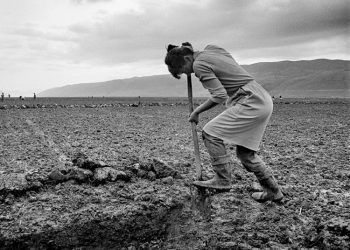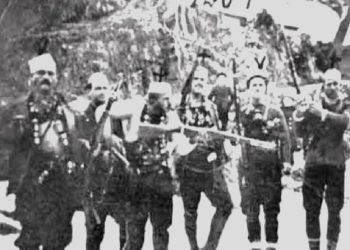Dashnor Kaloçi
Second part
Memorie.al publishes some unknown archival documents with the logo “Top secret” issued by the Central State Archive in Tirana, (the fund of the former Central Committee of the ALP), and that of the Ministry of Internal Affairs, where there is a voluminous dossier with a correspondence with letters, reports, information, reports, notes, instructions, etc., which belong to the end of 1974 and the beginning of 1975, which opens with a letter of the writer Hamza K., addressed to the Minister of Works Interior of that time, Kadri Hazbiu, where he denounces some of his colleagues, names of the most famous of Albanian literature, such as: Sabri Godo, Teodor Laço, Sotir Andoni, Dhori Qirjazi, Faslli Haliti, Roland Gjoza, Koçi Petriti, Frederik Rreshpja, Milianov Kallupi, Flora Mullaymeri, Klito Fundo, Koço Ristani, Niko Dako, Petraq Zoto, etc. The full letter of the military writer, Hamza K., from the city of Korça, to Minister Hazbiu, where in addition to analyzing some of the works and books that had been published to seven of his colleagues up to that time, by the Publishing House “Naim Frashëri” in Tirana, as well as the silence of the literary bodies “Drita” and Nëntori “of the League of Writers and Artists of Albania, he has raised many other problems, such as their careers and biographical aspects, even taking long and up to detailed details about them, which at that time alarmed the senior leadership of the ALP in Tirana, the State Security and all other relevant structures that depended on the problems that were raised in that letter, etc. .
The great ‘storm’ that arose against the writers and artists of Albania and all other employees of art and culture, after the speech of Enver Hoxha, initially held at the meeting of the Presidium of the People’s Assembly of Albania on January 9, 1973 , (just a few days after the end of the 11th National Song Festival on Radio-Television) and then at the extended meeting of the communists of the basic organization of the party of the apparatus of the Central Committee of the ALP which was held on the 15th and March 16 of that year, as it would go on long. Among other things, this is clear from the documents, which are taken from a voluminous file with the initials “Top secret”, where there is a long correspondence with letters, information, reports, reports, instructions, notes, etc., which belong to the month of November 1974 and continue long, until the end of 1975.
One of those writers that Hamza K., has denounced and has long dealt with his biographical side, was also the writer Teodor Laço, whom he knew very well, as he also had a fellow citizen from Korça. Although Teodor Laço, achieved a lot in his long career as a writer, screenwriter, playwright, prose writer before the ’90s, and director of the Kinostudio “Shqipëria e Re”, MP, ambassador, diplomat and minister, etc., after 90s, if we refer to the documents we are publishing, it seems that time has not provided, so much peace.
He even had to face many surprises that could very well change the course of his life. And not only him, but also his family and relatives. While he was leaving his hometown, Korça, and had come to Tirana, working full of passion and desire, at the Writers’ League, suddenly, at the end of 1974, a letter written by a “writing colleague” addressed to the minister Interior Minister, Kadri Hazbiu, with very serious accusations, made Teodori be transferred from Tirana and sent to the district of Fier, where he worked for ten years.
It did not end there, because as we will see from the documents in question, the letter that the “writing colleague” wrote about Teodor, alarmed the senior leadership of the ALP, which set in motion all its structures, even the Security of State, to discover and hit not only Teodor Laçon, but also some other writers such as Sabri Godo, Sotir Andoni, Faslli Haliti, Roland Gjoza, Moikom Zeqo, Koçi Petriti, Flora Mullaymeri, etc., who were mentioned and accused in that letter. And it was not long before measures were taken against them, where at first some of the books that Teodor Laço and his colleagues had published up to that time were removed from circulation…!
Continued from the previous issue
The report of the Directorate of Publications sent to the Central Committee of the ALP, following the letter of Hamza K.
THOUGHTS ON SOME BOOKS
- “The great spring”, by Sotir Andoni. It is a children’s book with ideological errors. This is where the influence of revisionist literature is felt in relation to the attitude towards the enemy (German), unrealistic situations are created, which do not serve the education of children. We are of the opinion that it should be removed from circulation.
- “The little one can grow up”, by Sotir Andoni. It is a novel with a lot of ideological concerns. In some cases it is not conceived towards the National Liberation War. There are nuances that highlight the fear of War. The attitude of the peasantry towards the war is distorted, the attitude of the peasantry towards the partisans, etc. So the deed does not educate the little ones well. We are thinking of removing it from circulation.
- “Notes written at night”, by Sotir Andoni. This novel also has flaws and errors of ideological character, especially in dealing with the figure of the commissar and commander. The partisan squad itself is given to us in isolation, its goals and connections are not clear, although it does a lot of actions. So the coverage of the National Liberation War does not correspond to reality. We are thinking of removing it from circulation.
- “The cold air of midnight”, by Teodor Laço. The book has some mistakes that consist in not emphasizing enough on the positive sides of reality, but deals more with the negative ones. It should be noted that he has an attitude towards the negative sides, he stigmatizes them. Therefore we think the work remains in circulation.
- “Mosaic” by Roland Gjoza. There are some moments that do not sound good and constitute mistakes or leave room for misunderstanding. But the biggest weaknesses of this volume are concepts of artistic character, so we think not to remove it from circulation. It is understood that if all these works had been submitted for publication now, they would have been returned to the authors for revision, or as unpublished.
- “Three people in a boat.” This is an easy work by an English author, Jerome Jerome, with humorous scenes and adventures that do not address social issues. He builds humor more towards the types and not about problems. But since there are no serious mistakes, we think it will remain in circulation.
- Simonov’s “Yellow Dog”. This is a work that should not have been published because it lacks a classy sense at all. Commissar Megre, who is in fact the representative of the bourgeoisie, presents himself as a good and charitable man. It is a work of adventure, with a language of the type of police novels. We think that this work should also be removed from circulation, as it has no educational value for our readers. The works we mentioned today are not in bookstores, but only in libraries, so they will be put in the reserved funds. We note that immediately after the completion of the study we are doing on the political and social literature from the Liberation until today, we will deal with the artistic literature, to conclude about the works that will be removed from circulation or will be corrected.
18. XII. 1975 DIRECTOR
Afka Gambeta
Information of the State Security Directorate, sent to the Central Committee of the ALP, regarding the writers mentioned in the letter of the writer Hamza K., addressed to the Minister of Internal Affairs, Kadri Hazbiu
SECRET
Copies, No.1
Tirana on 5. 12. 1974
I n f o r m a c i o n
Regarding the problems that arise in the letter of Hamza K. first.
First: regarding some persons mentioned in the letter, who have bad biographies, and are members of the Writers’ League, it turns out:
Sotir Andoni, a member of the Writers’ League, convicted of attempted escape, has been in close contact with Todi Lubonja, with whose support he emerged in free creativity. After the IV Plenum, he was sent to the village for re-education.
Teodor Laço, from Korça, brother-in-law of Sotir Andoni, member of the presidency of the Writers and Artists League. He had a father in America, he currently has aunts. From correspondence with them, it turns out that he constantly receives dollars and asks them for clothes, including old ones if they are. He was a supporter of the works of Fadil Paçrami, through his writings in literary bodies he raised them. He was brought to Tirana on the recommendation of Todi Lubonja.
During 1974 he published the novel “Day and night that can come”, which has nuances of the hostile theory of “sliding” is a connection of Vaskë Gjino.
Koçi Petriti, a teacher in Librazhd, a member of the Writers’ League, has a bad political background.
Flora Mollaymeri, with a bad political background, is known as a modernist woman. With the recommendation of Todi Lubonja, he finished school, and was asked by the newspaper “Drita”. After the IV Plenum he was criticized and sent to Korça. She is currently a teacher in this district.
Roland Gjoza, student of Language and Literature. He was advised by our bodies, after being implicated with a group of young people for hostile activities, criticized for his creations before the IV Plenum.
Faslli Haliti, member of the Writers’ League, author of the poem “The Sun and the Streams”, which was severely criticized for its very weak ideological content, for which Faslliu was taken into production for re-education.
Second: as far as the publication of some foreign works or our own, these belong to the period before the IV Plenum of K.Q., and some of these are from several years ago, as it is p. sh., for the work of Sabri Godos, “Campaign”, of 1963, which was not allowed to circulate.
Regarding the above, we are of the opinion that: The League of Writers and Artists, perhaps has a place to look at the class composition of some of its members because, in addition to the above persons, there are other elements with bad political content, with family members of convicted of serious crimes against the state, or fleeing abroad, such as: Robert Petro Ndrenika (theater actor) Dhori Qiriazi, Ymer Rustem Skënderi, Sadik Osman Kaceli, Ramadan Sokoli, etc.
In this regard, if it is considered reasonable regarding the preservation of the purity of the Writers ‘and Artists’ League, we as a body could also help and perhaps the presidency itself should look in the future more rigorously at accepting its members. For works with ideological weaknesses, as a rule, a deep and comprehensive analysis is not made with their authors, but only with the attitude of the critics through the articles in the newspaper “Drita” and “Nëntori”.
Perhaps it would be fairer to analyze from the collective the connection according to the respective genders with the creators, focusing in more detail on the shortcomings and weaknesses of their works. Party committees for some of these creators hold a more advanced position (such as the cases against Faslli Haliti in Lushnja, Frederik Kreshnja in Shkodra, Sotir Andoni in Korca, who have been sent for re-education in production), while the leadership of the League without reconciliation with the districts evaluates and activates them as members of the League.
President of Branch VIII
(M. B.)
Information on the letter of comrade Hamza K.
In the letter addressed to Comrade Kadri Hazbiu by Hamza K., a series of problems arise for many authors and literary works.
As soon as we received the letter, we called friends of the Ministry and the League and instructed them to consider some problems that belonged to them (such as the analysis of literary works) and we followed up some other problems.
To conclude on these issues was a complex and lengthy task, so we are doing the information now that generally the problems that arise to some extent have been solved.
First: remarks are made on a number of authors who do not have good class composition, and have been granted the right to publish. Mentioned: Koçi Petriti, Dhori Qiriazi, Sotir Andoni, Klito Fundo, Koço Ristani, Flora Mollaymeri, Teodor Laço, Gjergj Zheji, Roland Gjoza, Faslli Haliti, Niko Dako etc.
Based on other data, the League was ordered that Teodor Laço leave the League apparatus. He has now been transferred to Fier. The erroneous novel “Days and Nights That May Come” was discussed in the League staff and an article was published in the newspaper “Drita”, where it was severely criticized.
He made self-criticism. His creativity after Plenum IV, in addition to this novel, has been good. Based on the data we have had so far about Dhori Qiriazi and Sotir Andoni from the Party Committee of Korça, there has been talk about his mistakes. But so far no action has been taken on their being as members of the Writers and Artists League.
For Dhori, at our request, in recent days from the Cologne Party Committee, we have received a letter in which, among other things, it is stated that: in the discussions that took place after the last Plenums in the district, opinions were expressed not to be a member . But no concrete proposal to the Writers’ League or K. Q. of the ALP has been made by the Party committees for either.
Frederik Reshpja, referred to in the letter, has been hit. According to certain rules for all authors, except those who are well known before the work is published, the consent of the district is obtained.
This has been done for some authors mentioned in the letter, such as Klito Fundo, Roland Gjoza, Niko Dako, etc. They are not members of the League and with the exception of R. Gjoza, they are not dangerous either, so we have not followed him in a special way.
- Gjoza graduated from the University this year. He has been advised by the bodies of Internal Affairs that he was implicated with some young people with hostile content, he has been criticized for any creation, but as far as we know, he is not declassified. We are looking at his case because we could not fully clarify it.
For Flora Mollaymer, we talked to the Party Committee of Korça, to look at her and announce what attitude should be taken towards her. She is a teacher and a candidate for the League.
The author of the letter also remarks on some other writers, such as: Gjergj Zheji, Koçi Petriti, Koço Ristani. As far as we know, they have some flaws, but overall it is called reasonable for them to create and publish.
However, from the cadre sector of the K. Q. apparatus of the Party, the districts were asked for information on all the writers and artists of the districts, members of the League, in order to better see the class composition and their attitude. We together with the staff members are looking at the data we have in full for all members and we will bring out the problems that arise.
In Tirana, during the discussions that took place for the fight against bureaucratization, the class composition of some cadres was seen once again and measures were taken to gradually and on a case-by-case basis move from central artistic institutions, but for being or not members of the League, it is not raised any problems.
In the information of the Ministry of Interior, authors such as: Robert Ndrenika, Sadik Kaceli, Ramadan Sokoli, Imer Skënderi and Faslli Haliti are mentioned.
There may be others, whom we are looking at concretely. For some of these we have exchanged views with the committees of the Party of the districts, which are watching. Once they make proposals, the Party committees will take measures for their being in the League.
Faslli Haliti was taken to the village for re-education and did not publish anything in the press, but he was not deprived of the right to publish permanently. In his district so far only one work in painting has been exhibited.
Imer Skënderi is scheduled to leave the Institute of Arts, but he died some time ago.
Secondly, for the works that are criticized after being reviewed by the Ministry, although with many delays, it was recently concluded that:
A – “The big spring”, “The little one can grow up”, “Notes written at night”, works by Sotir Andoni, as well as “Yellow dog”, foreign literature, to be removed from circulation. They will remain in the library in reserved places.
B – The works of F. Reshpa, have been removed from circulation.
Sabri Godos’ book “Voices from Hot Springs” and the translated book “Three people in a boat” have also been removed from circulation.
Teodor Laço’s book, “Cold Air”, has a story with limitations and deals a lot with negative aspects, but the author has an attitude towards them, so both the Ministry and the League think not to remove it from circulation, but to make more criticism strong in the press.
For R. Gjoza’s book, “Mozaik”, published several years ago, it is thought that for now it should not be removed from circulation until his issue is fully clarified, although in the volume there are some moments that constitute mistakes or leave room. for misunderstandings.
We emphasize that immediately after the study that the Ministry is doing on the political and social literature since the liberation until today, it will review the artistic literature to conclude on the works that will be removed from circulation. We have suggested that they look at precedents and some other works, about which remarks are made in the letter. (Death on a ship, poetry from Kosovo, etc.). Unpublished works with ideological weaknesses are discussed in the editorial office; the conclusions are presented to the apparatus of K.Q.
We have commissioned several districts to discuss poor creations with the authors. In fact, in this regard, we should follow the work better. Many problems arise from the letter, but it can be seen that its author, Comrade Hamza K., from time to time, with remarks he makes, goes to extremes, for which he was remarked and in the discussion he made at the national seminar on problems of cultural work in the Army, in Durrës. /Memorie.al
27. XI. 1975.
(Jakup Mato)
The next issue follows




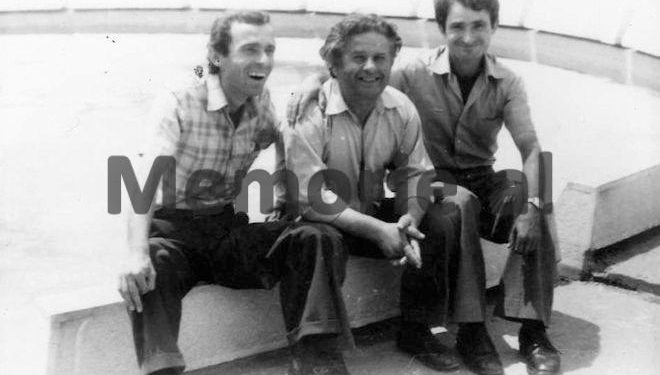
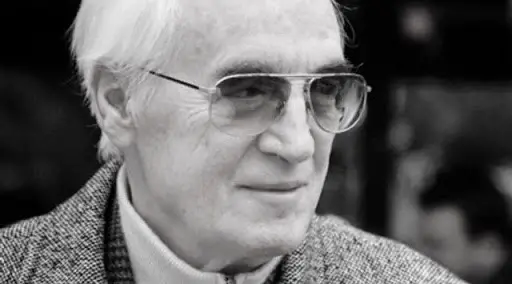
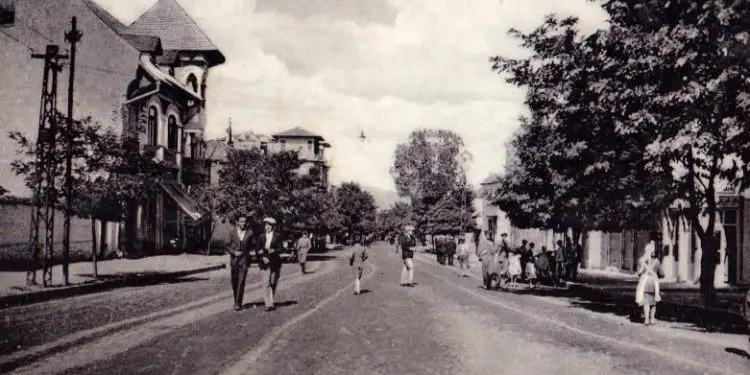
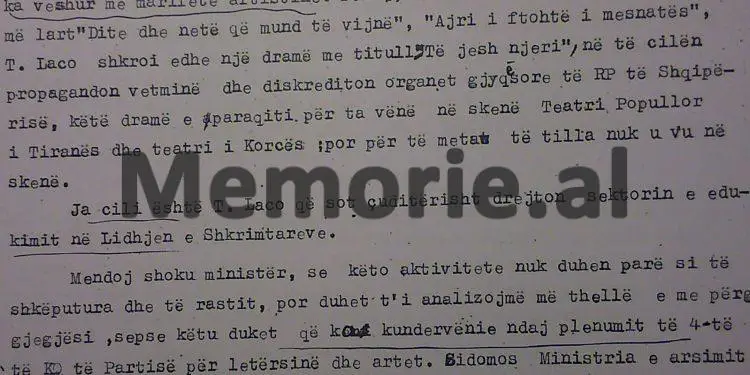

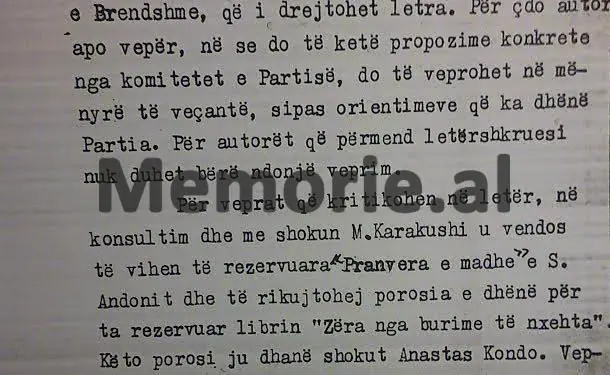

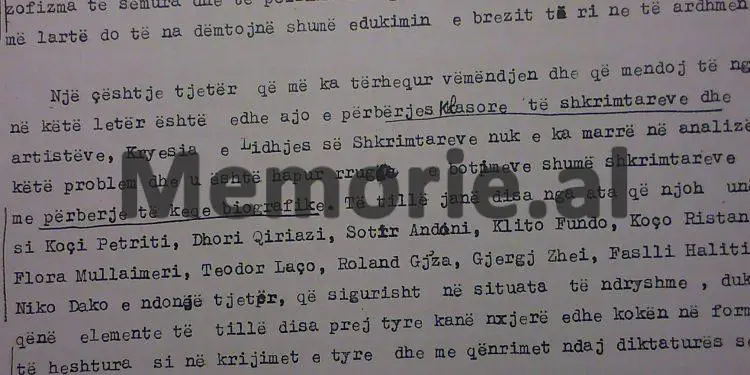
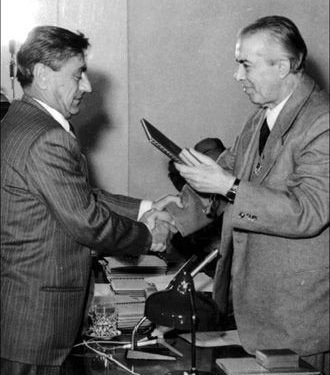
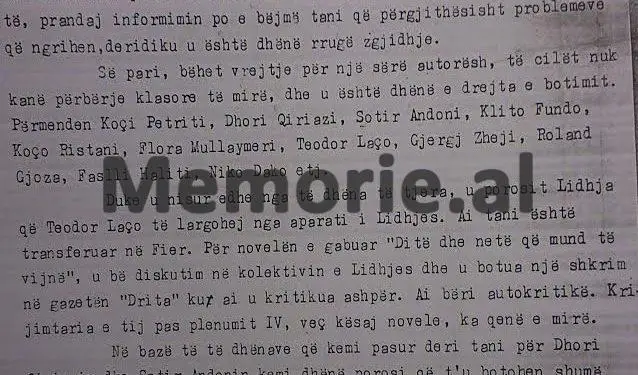
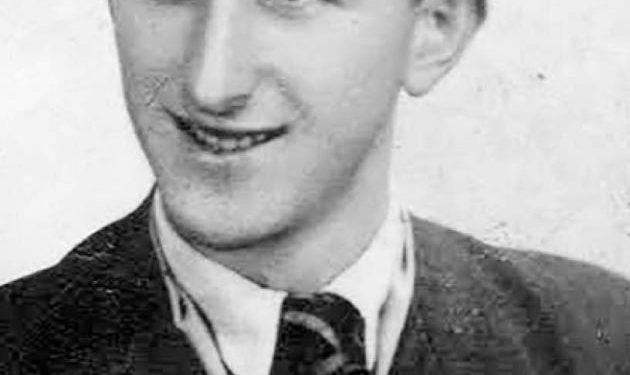
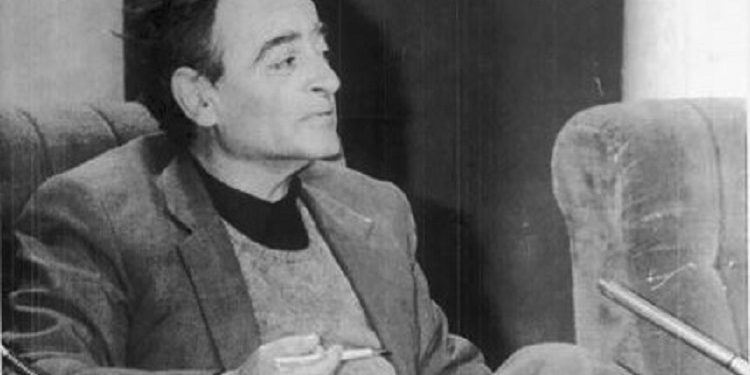
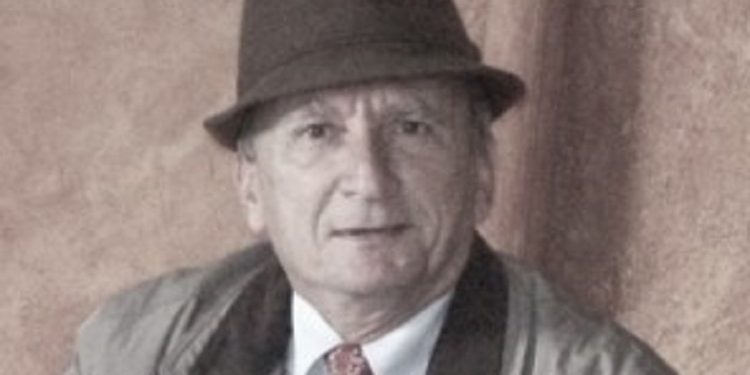
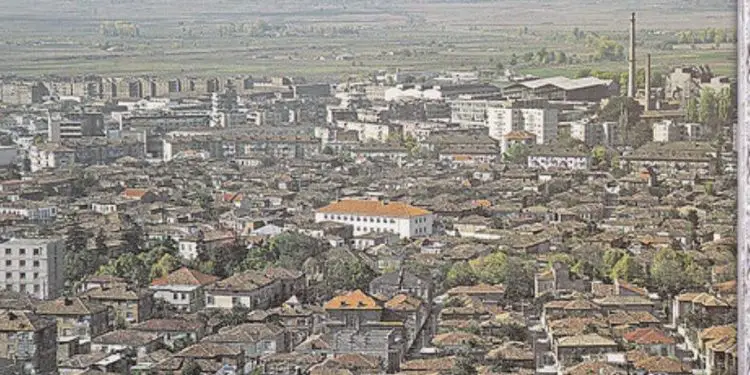
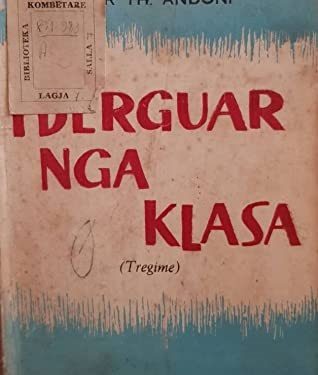
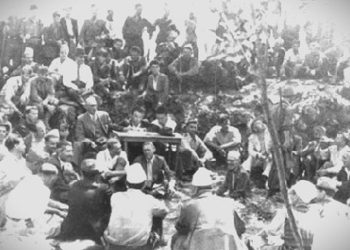
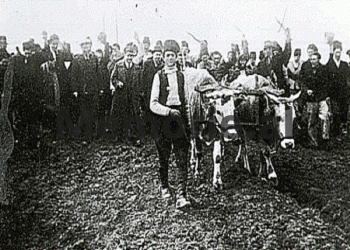
![“They have given her [the permission], but if possible, they should revoke it, as I believe it shouldn’t have been granted. I don’t know what she’s up to now…” / Enver Hoxha’s letter uncovered regarding a martyr’s mother seeking to visit Turkey.](https://memorie.al/wp-content/uploads/2026/01/Dok-1-350x250.jpg)

